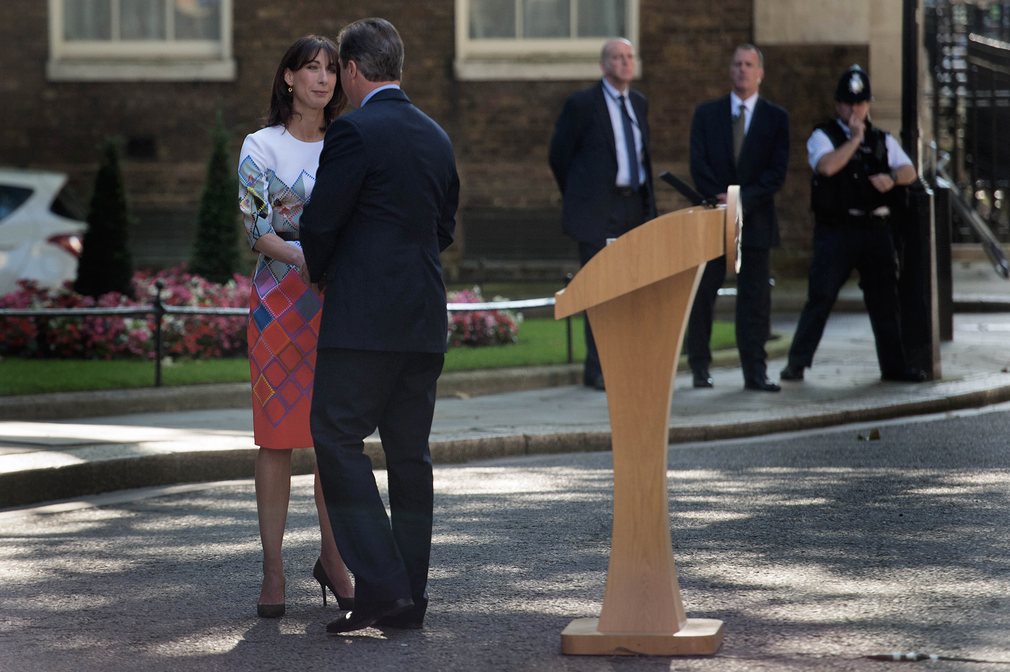Brussels, 21 Ramadan 1437/25 June 2016 (MINA) – A senior EU leader has confirmed the bloc wants Britain out as soon as possible, warning that David Cameron’s decision to delay the start of Brexit negotiations until his successor is in place may not be fast enough.
Cameron announced on Friday morning that he would step down as prime minister by the autumn, after the British public caused a political earthquake by voting 52%-48% to leave the European Union.
Martin Schulz, the president of the European parliament, told the Guardian that EU lawyers were studying whether it was possible to speed up the triggering of article 50 of the Lisbon treaty – the untested procedure for leaving the union.
As the EU’s institutions scrambled to respond to the bodyblow of Britain’s exit, Schulz said uncertainty was “the opposite of what we need”, adding that it was difficult to accept that “a whole continent is taken hostage because of an internal fight in the Tory party”.
Also Read: UN Experts Warn Right Violations in Kashmir by Indian Authorities
“I doubt it is only in the hands of the government of the United Kingdom,” he said. “We have to take note of this unilateral declaration that they want to wait until October, but that must not be the last word.”
Schulz’s comments were partially echoed by the president of the European commission, Jean-Claude Juncker, who said he there was no reason to wait until October to begin negotiating Britain’s departure from the European Union.
“Britons decided yesterday that they want to leave the European Union, so it doesn’t make any sense to wait until October to try to negotiate the terms of their departure,” Juncker said in an interview with Germany’s ARD television station. “I would like to get started immediately.”
Also Read: At Least Nine Children and One Woman Killed in Pakistani Airstrike on Afghanistan
Fear of fresh global financial crisis
As the pound fell to its lowest level since 1985 amid fears that the Brexit vote could spark a fresh global financial crisis, the governor of the Bank of England stepped in on Friday to calm financial markets.
Mark Carney said Threadneedle Street was ready to do whatever was needed to mitigate the impact of Britain’s historic vote to leave the EU. City traders quickly responded by placing bets on an interest rate cut by the end of the year.
Also Read: Academic Boycott of Israel Doubles Despite End of Gaza War
With anti-European sentiment on the rise across the continent, national governments outside Europe’s capital sought urgently to prevent any contagion from the UK vote, urging swift reforms to the 60-year-old bloc. Calls for similar referendums were made in France, the Netherlands and Sweden.
Cameron, who had campaigned hard but ultimately unsuccessfully to keep Britain in the EU, emerged outside No 10 Downing Street just after 8am on Friday to announce his departure, accompanied by his wife, Samantha.
“I was absolutely clear about my belief that Britain is stronger, safer and better off inside the EU,” he said. “I made clear the referendum was about this, and this alone, not the future of any single politician, including myself.
“But the British people made a different decision to take a different path. As such I think the country requires fresh leadership to take it in this direction.”
Also Read: Sudanese Army Battles RSF in Kordofan as Civilian Hardship Worsens
Cameron said in his resignation speech that it would be up to his successor – expected to be appointed before the Conservative party conference in October – to trigger article 50. Once that is done, the clock starts running on two years of negotiations.
Boris Johnson, the former mayor of London and a leading leave campaigner, said there should be “no haste” in the preparations for the exit of Britain, the first sovereign country to vote to leave the union.
Increasingly losing touch
The president of the European council, Donald Tusk, said the 27 remaining members of the bloc would meet next week to assess its future without Britain. “It is a historic moment, but not a moment for hysterical reactions,” he said.
Also Read: Hundreds Rally in Stockholm to Condemn Israeli Attacks and Ceasefire Violations in Gaza
In Berlin, the German chancellor, Angela Merkel, expressed “great regret” at Britain’s decision, but said the EU should not draw “quick and simple conclusions” that might create new and deeper divisions.
The Handelsblatt newspaper said a leaked eight-page emergency Brexit plan suggested the German government should push for an “associative status” for Britain after two years of “difficult divorce negotiations”.
The document indicated that Germany would drive a hard bargain to “avoid offering false incentives for other member states when settling on new arrangements”. Specifically, the paper advocates “no automatic access to the single market”, Handelsblatt reported on Friday afternoon.
While Brussels talked tough, a chorus of European capitals, anxious to avoid clashes with their own Eurosceptic citizens, stressed that the Brexit vote should be seen as a wake-up call for a union that was increasingly losing touch with its people.
Also Read: Mass Protests Erupt in Bologna Against Israeli Teams Ahead of EuroLeague Match
Speaking in Paris, the French president, François Hollande, said he “profoundly regretted” the Brexit vote but that the EU now had to make changes. In a brief televised statement, Hollande said the vote would put Europe to the test: “To move forward, Europe cannot act as before.”
Mark Rutte, the prime minister of the Netherlands, which holds the EU’s rotating presidency, said the EU “has to become more relevant, deliver added value to our lives: jobs, growth, control of our external borders”.
He said he personally felt “this strong discontent with Europe, the Europe of the lofty speeches. Most of my EU colleagues also share this view. They too don’t want any more big visions, conventions and treaties.” (T/R07/R01)
Mi’raj Islamic News Agency (MINA)
Also Read: UN Warns of Rapidly Worsening Humanitarian Crisis as Over 100,000 Flee Violence in Sudan
































 Mina Indonesia
Mina Indonesia Mina Arabic
Mina Arabic